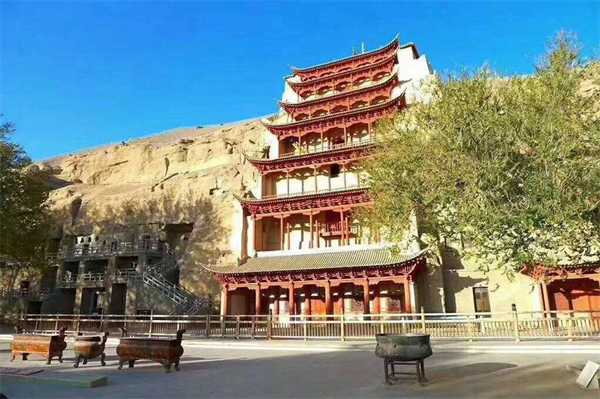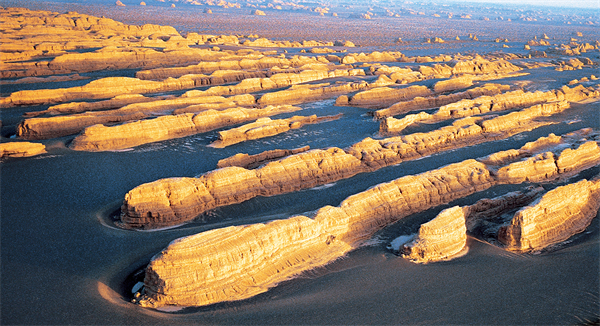


The total area of Jiuquan city is 192,000 km2, accounting for 42 percent of all of Gansu province. Jiuquan is made up of one district, two counties, two autonomous counties, and two cities. More than 40 ethnic groups, including Han, Mongol, Kazakh, and Hui, dwell there. Its population in 2019 was 1,132,200. Also, Jiuquan presents magnificent and unique natural scenery, which is composed of glaciers, oases, and magical mirages that appear in the desolate Gobi Desert.
Jiuquan has 50,000 km2 of arable land and 4,380,000 km² of pasture land. There are 48 kinds of detected mineral resources at 487 places scattered in five large metallogenic belts, among which the reserves of asbestos, tungsten, chrome, magnesium, and gold rank at the top in Gansu province and even in the nation. Taergou Area has the largest tungsten mine in Asia, and the Laojunmiao oilfield was the earliest natural oil base in China.

Dunhuang Mogao Caves
Jiuquan is a great tourist city with unique tourism resources, including five world cultural heritages, one national AAAAA-level traveling scenic area, and five national AAAA-level traveling scenic areas. The Dunhuang Mogao Caves, Guazhou Suoyang City, Dunhuang Yumen Pass, the Great Wall of the Han Dynasty, and the Dunhuang hanging spring site are famous world cultural heritages. Mingsha Mountain, Crescent Lake, Yumen Chijin Gorge, Yadan National Geopark, Jiuquan Satellite Launch Center, and Jinta Populus euphratica forest are distinctive cultural and natural landscapes. Jiuquan is famous at home and abroad for its Dunhuang culture, frontier culture, and space technology, and was selected as "The Most Popular Well-Known Western City" by China Central Television.

Yadan National Geopark